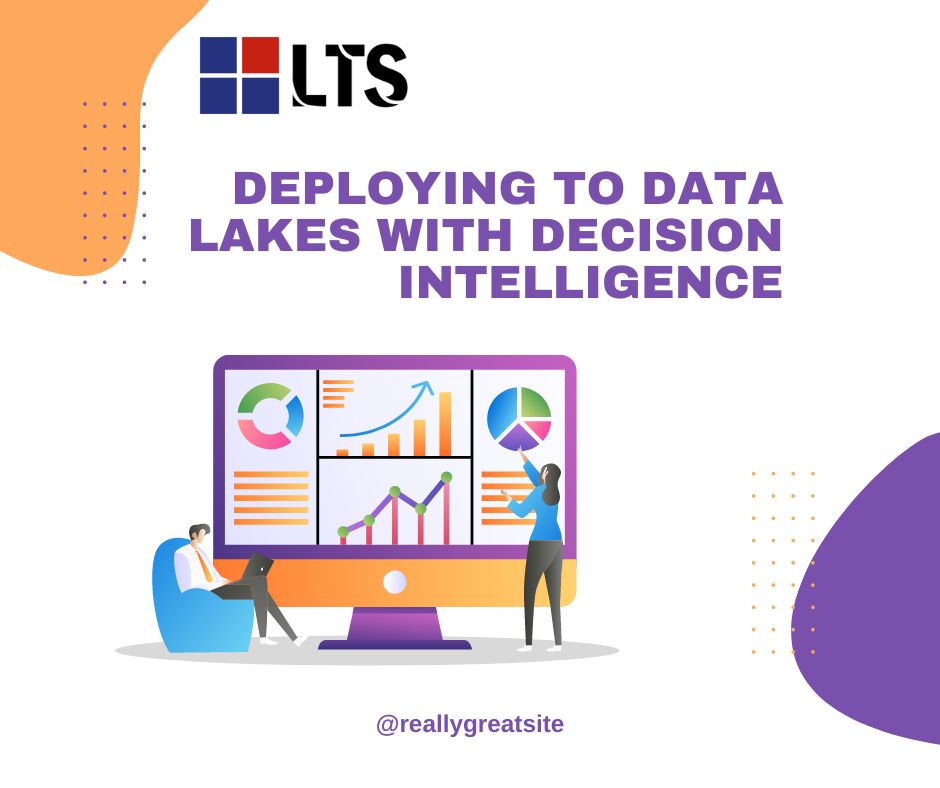Deploying to Data Lakes with Decision Intelligence
A data lake is a raw data store that stores large amounts of structured and unstructured data. schema-agnostic often collect primary data in its native format before the dataset is used for analysis. Implementing Data Lake in business intelligence is necessary as BI is genuinely about using data from yesterday and today to make a better decision about tomorrow.

Moreover, unstructured data as a Service provides pre-built cloud services that hide the complexity of the underlying platform and infrastructure layers. The platform allows anyone in an organization/enterprise to create a data lake without installing or maintaining any technology and leverage data analytics. Data Lake as a Service brings enterprise big data processing to the cloud to cost-effectively deliver faster, more efficient business outcomes.
Why do we need it?
Every organization wants to use analytics for better decision-making and business growth in today’s data-driven world. Every company has multiple departments, and each has different data requirements. They want to put the data in another data lake or warehouse that can be analyzed to make business-related decisions. The organization also wants to generate charges according to specific requests from departments, depending on the usage of the environment provided.
What are the benefits of a data lake?
Beside, Data is stored in a raw, unfiltered format to be ingested more efficiently from across the enterprise. This differs from a standalone data warehouse, where data is first transformed and structured. The development cycle for
design-analysis-build takes only 1-2 weeks compared to 6-12 months using data warehousing techniques.
Increased efficiency can reduce delivery costs. The ETL program execution, data modeling, and integration requirements are minimal. The data lake allows for frequent testing and analysis as business conditions change.
What’s more, Data lakes together provide a cost-effective business intelligence environment. This helps identify additional queries and metrics.
How does Data Lake improve business intelligence?
Moretheless,Modern Business Intelligence Data management you can focus on increasing value, thus increasing the impact of investments in intelligence. Data lakes can add value to business intelligence solutions by making data processing more efficient.
Furthermore, Business Intelligence involves gathering operational business information and transforming it into technical solutions. Design metrics, data models, extraction, transformation, and loading processes transform raw data into meaningful information. After this process, his latest BI information you will enter it into the analytics database. Centralized real-time dashboard visualized data for business reporting purposes. The ultimate goal of the process is to make informed and intelligent decisions based on operational data. The significance of big data analytics and artificial intelligence is that they can automate and accelerate data preparation tasks such as data model generation to support data exploration. You can learn patterns of common human errors and identify and correct potential errors in your information.
Conclusion –
The role of big data in the financial and legal industry is to reduce financial risks, increase productivity and improve customer service. In summary, business reports help you gain insights that help you create a growth strategy for your business.
For more details on Azure data lake, click https://en.wikipedia.org/wiki/Azure_Data_Lake.
A data lake allows you to store relational data, such as operational databases and line-of-business application data, and non-relational data, such as mobile apps, IoT devices, and social media. You can also make sense of the data in your lake by searching, cataloging, and indexing it.
